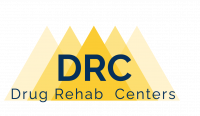Is Addiction Hereditary?

While you may wonder if an alcoholic father is certain to have an alcoholic son, the relationship between addiction and heredity is a lot more complex. Certain genes or hereditary effects may make someone more likely to engage in addictive behaviors and result in a newfound addiction.
Addiction is a complex disease that affects the reward, stress, and self-control centers of the brain. Many people who suffer from a substance use disorder question if their addiction is inherited. We look at the common causes that might lead to addiction and why drug and alcohol treatment is required.
The Impact of Genetics on Addiction
Our eye color, personality, and predispositions are all influenced by the structure of our genes and the information contained within them. A predisposition is a likelihood of developing a medical disease, illness, or behavioral characteristic.
A susceptibility to drug addiction can be passed down the generations. However, having a genetic predisposition to drug addiction does not guarantee that a person would acquire one; genes are simply one element in addiction development. Several genes also increase the likelihood of developing a substance abuse disease.
A person with a drug addiction propensity who is also predisposed to non-conformity and impulsive tendencies, for example, may be more likely to develop hereditary drug addiction than someone with fewer predispositions.
Other Factors that Influence the Development of Addiction
Aside from genetics, numerous additional factors can influence the likelihood of developing an addiction. Environmental variables such as childhood exposure to drug use in the family, as well as dangerous situations and peer pressure, can raise the chance of drug addiction and lead to drug and alcohol recovery.
Addiction can emerge as a result of trauma such as abandonment, abuse, or a significant loss, especially if an individual has a genetic susceptibility to a substance use problem.
Gender can play a role in addiction development; women are more likely to experience cravings and relapse, while men are more likely to misuse substances.

Disorders That Coexist
When someone has a mental disorder, they may develop a drug addiction. A co-occurring disorder is what this is called. Because the signs of addiction can seem like symptoms of mental health issues and vice versa, diagnosing co-occurring illnesses can be difficult.
The following are examples of disorders that can co-occur with addiction:
- Bipolar illness
- PTSD
- Schizophrenia
- Obsessive-compulsive disorder (OCD) is a type of anxiety condition.
- Depression
Whatever the root of one’s addiction, the best way to break free is to seek help as soon as possible.
Get Your Family Ready
The key to keeping family members healthy is transparency. Being open and honest about a pattern of drug abuse is the first line of defense.
Consider this: would you discuss another genetic health concern in your family, such as a gene mutation that causes sickle cell disease or breast cancer? It’s perfectly acceptable to assist your loved ones in avoiding risk factors and recognizing the major symptoms of generational substance misuse.
- Establish safety precautions. Certain protective variables, like risk factors for addiction, can assist minimize such chances, especially in children. Implement positive self-control strategies; encourage methods of engaged socialization; assist in the establishment of the intrinsic rewards of goal planning and completion; and seek out community resources that reinforce all of the above.
- Make a healthy portrait of your family. Your descendants have a right to know what may have an impact on their physical, emotional, and mental well-being. To start the dialogue and offer details, use this private NIH resource.
- Education is crucial. It’s never too early to discuss the negative consequences of drugs and alcohol. KidsHealth has developed a conversation guide for age-appropriate topics to help correct misconceptions.
- Secrets tend to make things worse; instead, use your courage to improve the lives of those you care about.
A team led by Dr. Paul Greengard, a Nobel Prize-winning neurobiologist and NIDA-funded researcher in New York City, revealed another significant scientific accomplishment in 2004. Dr. Greengard’s team discovered that DARPP-32, a brain protein, is involved in practically every known drug of abuse, including cocaine, opiates, and amphetamines. DARPP-32 acts as a mediator between practically all neurotransmitters (chemical brain messengers) in all areas of the brain. Mice that had DARPP-32 deleted from their brains were no longer responsive to drugs of abuse.
If the research done on the role of genes in addiction is to be believed, a person’s genetic proteins can influence and determine the likeliness of the individual getting a drug addiction. Continued research into genetic variables in drug addiction could lead to new ways of understanding the condition and new treatments for preventing and treating it.
Wrapping Up
Thinking of overcoming your drug addiction hereditary issue but don’t know where to start?
Our team at Drug Rehab Centers have got you covered!
Our efficient group of therapists and clinicians make it easier for you to overcome your addictions and reduce the chances of a possible relapse. The healthcare providers here are also trained in handling withdrawal symptoms so can be rest assured to choose the right path. Get in touch with us today to learn more.
